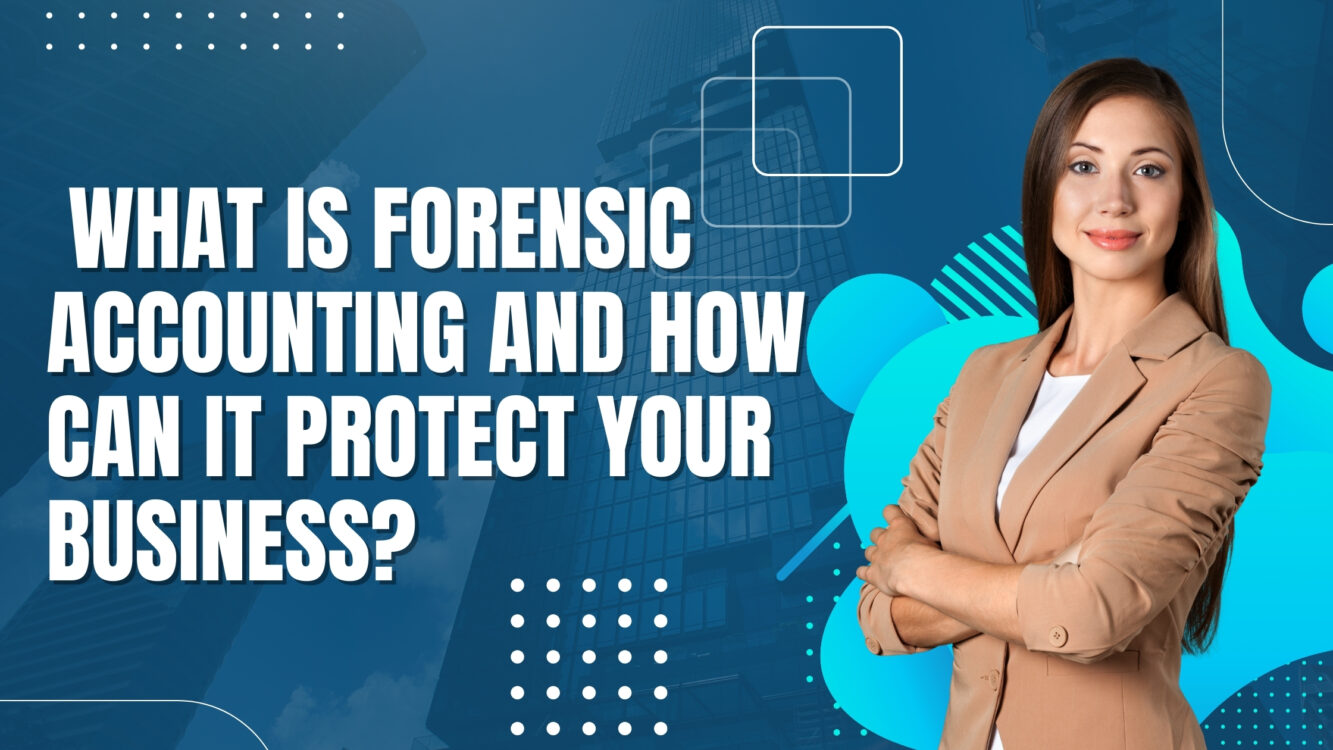
Introduction: Forensic accounting is a specialized field of accounting that involves investigating financial records to detect fraud, embezzlement, or any financial mismanagement. Forensic accountants use their skills to uncover irregularities, track assets, and provide evidence that can be used in legal proceedings. For businesses, forensic accounting not only helps in detecting fraud but also plays a pivotal role in preventing financial losses, protecting assets, and ensuring compliance with regulatory requirements.
In this blog, we will explore what forensic accounting is, how it works, and how it can be a game-changer in protecting your business from financial crimes and mismanagement.
Key Topics to Cover in the Blog:
- What is Forensic Accounting?
- Definition and Scope
- The role of forensic accountants
- Difference between forensic accounting and traditional accounting
- How Forensic Accounting Protects Your Business
- Fraud detection and prevention
- Risk mitigation
- Improving internal controls
- Legal protection and regulatory compliance
- Common Types of Fraud Investigated by Forensic Accountants
- Financial statement fraud
- Asset misappropriation
- Corruption and bribery
- Cybersecurity fraud
- When to Hire a Forensic Accountant
- Signs your business may need forensic accounting services
- How forensic accountants help in internal investigations
- The role of forensic accountants in litigation support
- The Process of Forensic Accounting
- Steps involved in a forensic accounting investigation
- Tools and techniques used by forensic accountants (data analysis, interviewing witnesses, etc.)
- Reporting and documentation of findings
- Benefits of Forensic Accounting for Small and Medium-Sized Businesses
- Cost-effectiveness in fraud detection
- Strengthening business reputation
- Better financial decision-making
FAQ Section:
Q1: What is the difference between forensic accounting and regular accounting?
- Forensic accounting focuses on investigating and resolving potential financial fraud and legal issues, while regular accounting deals with general financial recordkeeping and reporting. Forensic accountants analyze financial data for irregularities, conduct investigations, and provide expert testimony in legal cases.
Q2: How does forensic accounting help prevent fraud in my business?
- By implementing stronger internal controls, conducting audits, and analyzing financial records for inconsistencies, forensic accountants can uncover potential fraud early. They also help design systems that minimize the risk of fraudulent activities occurring in the first place.
Q3: Can forensic accountants help with legal disputes?
- Yes! Forensic accountants can provide expert testimony in court, assist in dispute resolution, and offer a thorough analysis of financial records that can be used in litigation cases. They play an essential role in resolving legal disputes that involve financial misconduct.
Q4: How much does forensic accounting cost?
- The cost of forensic accounting services varies depending on the complexity of the investigation and the size of your business. While forensic accounting may seem expensive, the benefits of detecting fraud early and mitigating risks can far outweigh the costs.
Q5: When should I consider hiring a forensic accountant?
- Consider hiring a forensic accountant if you suspect financial fraud, if your business is undergoing a legal dispute, or if you want to strengthen internal controls and prevent potential fraud. Forensic accountants can also assist during mergers and acquisitions to ensure all financial information is accurate and transparent.
Tips for Using Forensic Accounting to Protect Your Business:
- Strengthen Internal Controls:
- Work with forensic accountants to establish robust internal controls and auditing processes. These preventive measures can detect red flags and make it harder for fraud to occur.
- Regular Financial Audits:
- Schedule regular internal and external audits. Regular checks help identify discrepancies early on and prevent long-term damage.
- Train Your Employees:
- Educate employees about financial fraud, ethics, and the consequences of fraudulent activities. An informed workforce is less likely to engage in fraudulent behavior.
- Have a Fraud Policy:
- Establish a clear fraud policy and communicate it to all employees. Ensure that there are defined procedures for reporting suspicious activity.
- Stay Compliant with Regulations:
- Regularly consult with forensic accountants to ensure that your business complies with financial regulations and laws to avoid potential legal issues.
- Monitor Financial Transactions Continuously:
- Implement systems to track and analyze financial transactions in real time. This helps in identifying unusual activities and mitigating risks before they escalate.
- Conduct Exit Interviews:
- If employees leave the company, conduct thorough exit interviews and review their financial transactions during their employment. This can help uncover any potential fraudulent activity they may have been involved in.
Conclusion: Forensic accounting is a powerful tool that can help protect your business from fraud, embezzlement, and other financial crimes. By proactively incorporating forensic accounting practices into your business, you can strengthen your internal controls, detect irregularities, and ensure legal protection. It’s a smart investment that could save your business from significant financial loss and damage to its reputation.
